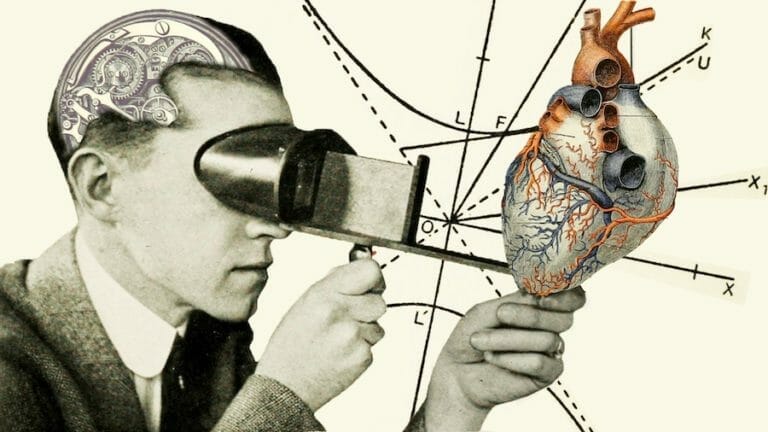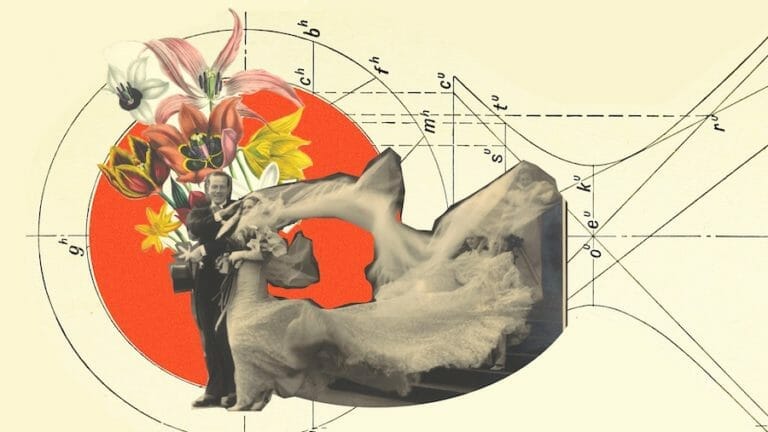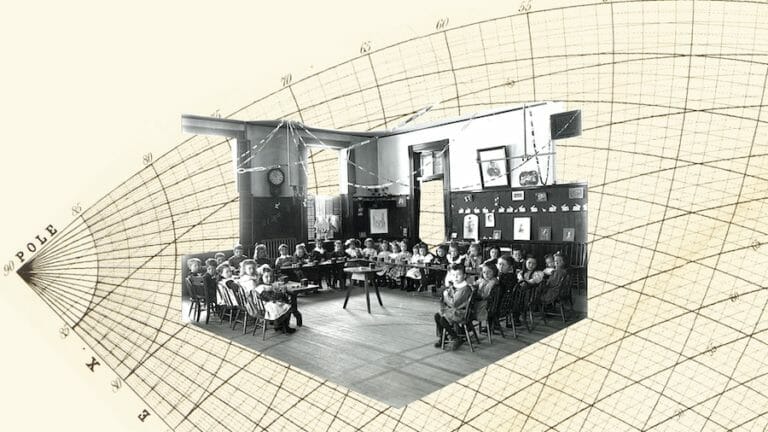How do adverse childhood experiences (ACEs) affect the body?
I talk about four ways that emotional trauma changes biology. So the first one is, it impacts behavior. If you’ve had a rough childhood and you’ve had some high levels of ACEs, it’s absolutely proven that you will more likely engage in risky health behaviors and damaging health behaviors. I know the statistics, for example, if you have had four ACEs, you’re seven times more likely to become an alcoholic, you’re over three times as likely to engage in risky sexual behavior, you’re over 11 times more likely to use injection drugs, 12 times more likely to be suicidal.
So clearly, that kind of behavior is going to lead to those health statistics, and obviously the impact on the heart and so on. But the interesting thing is that big study of 17.5 thousand people. They actually looked at it and said, ‘Okay, if they were looking at people that had normal cholesterol, didn’t drink, didn’t smoke, had a normal body mass index, weren’t diabetic, they were healthy.’ Yet if they had seven ACEs, they still had a 360% increased risk of heart disease. So that’s when you were still sort of, for all intents and purposes, leading a healthy life.

So the researchers started looking and say, well, what else could it be? And this is where we started to look at the second thing, which is biochemistry. This is where there’s some landmark studies now coming through in the realm of epigenetics. We found that emotional trauma and early life stress change the genetic expression, especially of the glucocorticoid receptors. This was some of the landmark studies done by neuroscientists, and Mose Schiff, a geneticist. They were looking at the whole kind of epigenetics science research area as a whole and wondered, if chemicals and diet could impact how genes express, could emotional stress in childhood have the same impact on neurons? And it was absolutely proven, yes.
Young rat pups that aren’t nurtured by the mother resets their whole neuroendocrine immune system from the day that it happens. And essentially what happens, it does two things. It wires the brain to be in a chronic sympathetic stress state, and you have a lower threshold for what will cause you to have a stress response. So essentially, the hypothalamic-pituitary adrenal axis, the axis that pumps out cortisol, is chronically switched on from a young age—from the date the trauma happens. Some researchers said it’s like the children are marinating in cortisol and inflammatory cytokines from a young age.
When we get into adulthood, essentially what that means is we’ve lost resilience.
In adulthood, a trigger might come along, like it might be a viral infection or an emotional issue, or a job loss or something. Suddenly, a physical illness expresses. Suddenly we get an autoimmune disease or something. That autoimmune disease started 20, 30, even 40 years before when the system was reset. This is literally how the body remembers, and we get stuck in this chronic stress state.

By the way, the rat studies were replicated in humans. I should also mention, the research is now showing it’s the entire genome is impacted by emotional trauma. It’s not just these glucocorticoid receptors in the neurons in the brain. It has to do with epigenetics involved with all kinds of biological processes, including making you more prone to psychiatric conditions, mental health, blood sugar control issues, everything—cancer, heart disease, the whole range. So we know there’s an epigenetic footprint.
Trauma leaves an epigenetic footprint. So just so that people aren’t getting depressed, it’s reversible. We’ll talk about that. It is reversible.
How trauma affects personality and identity
But there’s another area that’s the most interesting—one of the most interesting areas to me, and that’s the most underexposed. So the epigenetics is getting out there, and it’s landmark at all this. It’s spawned lots of other studies. What’s not getting seen so much is the impact that trauma has on the personality and identity level of people. This is coming back to what we were saying about, for example, the number of eating disorders that are going on.
So a lot of people don’t realize, but the original ACEs study started in an obesity clinic and it was in Kaiser Permanente. Dr. Felitti at Kaiser Permanente were running a pretty successful weight loss clinic, had a huge outpatient clinic that sort of many, many patients involved with that clinic. So it was a huge survey study, but he was finding that what happened is the patients were dropping out, badly. He had a 55% dropout rate, and he couldn’t understand what was going on. The diets were working. People were losing weight, but they were getting more anxious, having panic attacks, and they just couldn’t stick with the program.
Anyway, he found out by mistake by surveying them that the reason was summed up by one woman who said essentially, being overweight was a protection mechanism against unwanted male attention. She’d been sexually abused as a child. So what we have here is, this is the trauma going at the identity level, and it’s going to sabotage your best intentions.
When I worked in the chronic fatigue clinic, and we started using a personality identity testing system, we found there were certain personality types that were prone to fatigue. It was super achievers, perfectionists—this is simplifying—over-givers and anxiety types.
How we develop our personality as an adult is a response to trauma in childhood
So as a simple example, somebody who was abandoned and maybe betrayed by a caregiver and rewarded for only achieving things and doing this rather than being this, the way they would respond to that is becoming a super achiever. Essentially they never stop. They don’t know how to relax. If they do relax, huge feelings of lack of self-worth come up.

We would have the same thing with the perfectionist. Over-givers are another type. Tons of practitioners are actually in the over-giver strategy. They’ve usually had trauma around making them feel unlovable, so they make up for that by discounting their own needs, constantly putting everybody else before themselves. It’s a very loving person, but, you know, have to turn the healer inwards. So here we have identity level issues occurring where people can’t stick to a health protocol. They’re going to sabotage it. They don’t know how to calm down and relax, and recharge into a deep state of relaxation. They can’t do it. They can never slow down.
This is one area where it’s not enough to be a nutritionist working with diet or even kind of a naturopath. You need to be aware of the subjective issues going on inside your patient, not just the biology. Who are they? What drives them? Because they’re not going to be able to comply with your protocols and I think it’s one of the most important areas. There’s an emotional component to every illness, but heart disease is one of the top ones impacted by stress and emotional trauma.
If you truly believe you will be healthy, from all depths and levels, chances are you will—the same goes for the latter
I do talk about beliefs as well. So it’s kind of linked with identity, but it’s so important. It was the Framingham Heart Study of women, thousands of women, where they were looking at the impact of what’s called the nocebo effect. So we know we have the placebo, and I think it accounts for 33% of all healing in drug trials comes from the magic of a placebo pill.

There’s a study called A Host of Ills related to the nocebo effect. It’s in the Journal of American Medical Association, looking at the Framingham Heart Study. It showed that women who believed they were prone to heart disease were four times as likely to get heart disease versus other women who didn’t believe it but had the same risk factors. So if you believe that you’re going to get something, it’s huge.
But one of the things I would mention about ACEs and emotional trauma is that it can create unconscious beliefs. So someone might think, “I deserve health. I’m going to be healthy. I’m going to be well.” But at the unconscious level, there’s an unconscious belief going on that they don’t deserve health, that maybe they’re broken-hearted in an unconscious level from everything that happened.
Essentially, the mind is so powerful. Beliefs are so miraculously powerful. You can’t just talk about psych and neuro-immunology to explain the mind-body connection. There’s more going on. If somebody has that, it’ll overrule that the mind will create that truth. It’s there to serve you. And your unconscious mind is going to say, “Okay, well, you don’t really believe you deserve health. You think that you’re unvaluable and that suffering is what you should have. So there you go, you’ll have it.”
It will trump anything else you’re doing. Even if you’re doing a healthy diet and complying with everything, it can be a kind of sabotage again. It’s so important to really explore beliefs and unconscious belief systems.
